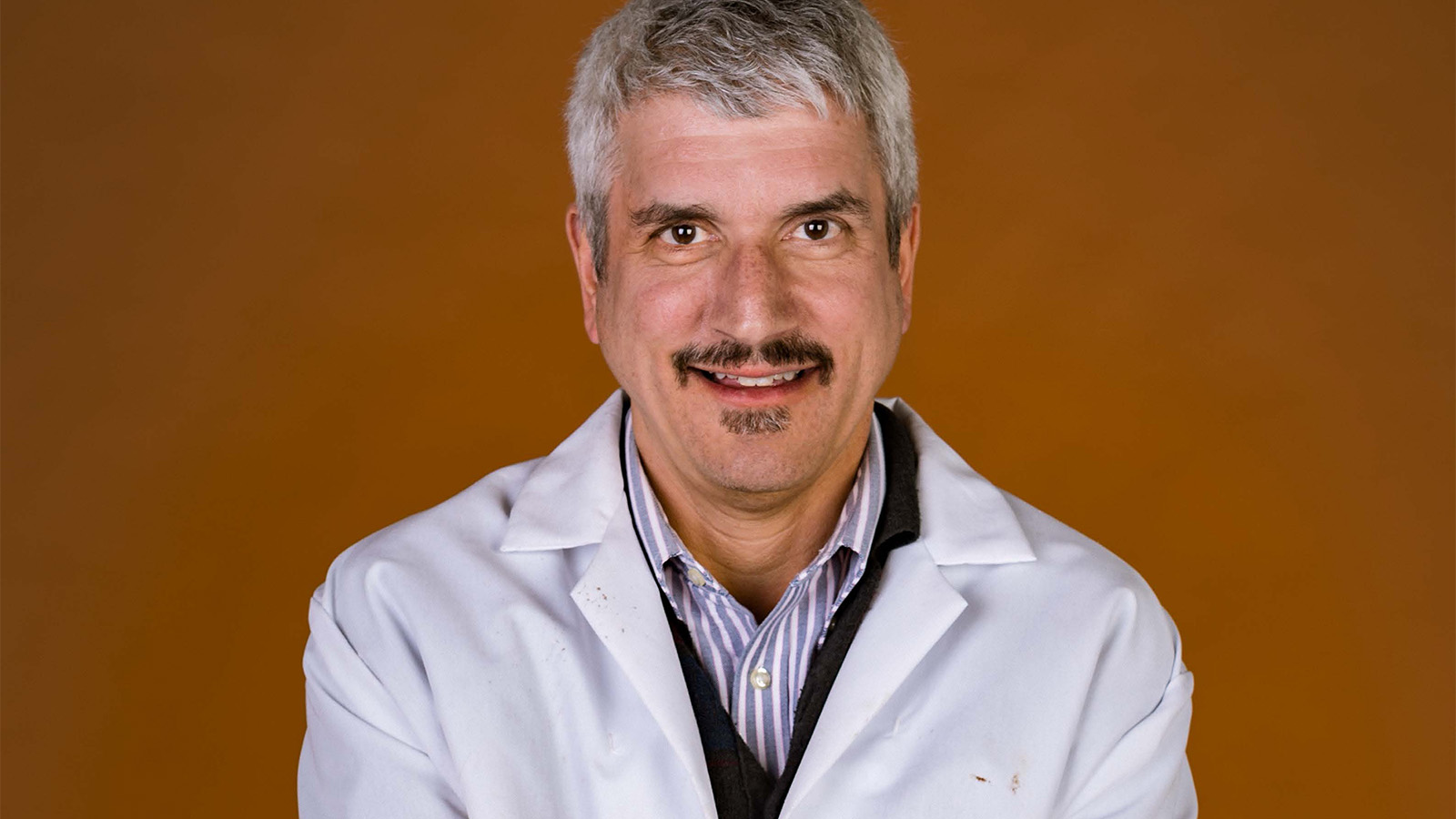
Thomas Trabold
Research Faculty
Thomas Trabold
Research Faculty
Education
BS, Ph.D., Clarkson University
Bio
Dr. Thomas Trabold teaches courses in the fundamentals of sustainability science, sustainable energy systems, sustainable mobility systems, and green chemistry. His primary research focus is in the development of alternative energy technologies including fuel cells, bio-fuels, and waste-to-energy processes. In 2014 and 2015 he was nominated for the Richard and Virginia Eisenhart Provost’s Award for Excellence in Teaching, and in 2007 he earned the General Motors McCuen Award for “Neutron Imaging Facility and Methods for Fuel Cell Water Visualization.” His students say he has a system-level perspective informed by fundamental understanding and experiential knowledge. When Dr. Trabold isn’t in the lab or classroom, he enjoys soccer, basketball, trail hiking, biking, and gardening.
Prior to RIT, Dr. Trabold spent 20 years in positions at General Electric, Lockheed Martin, Xerox and General Motors. Most recently, he managed a research and development team in the General Motors fuel cell vehicle program, with engineers working in New York, Michigan, Germany, and India. Dr. Trabold holds BS and Ph.D. degrees in Chemical Engineering from Clarkson University.
Teaching
My graduate teaching philosophy is based upon complementing and broadening our current research activities in sustainable energy and mobility systems. I encourage students to think critically and independently, and to challenge their understanding of how technical fundamentals link to applications of interest. It is expected that students develop their analysis skills to the extent that they can understand and communicate the broader implications of their specific research specialty.
Returning to academia after a 20-year industrial career, which included both technical and managerial roles, I also strongly emphasize the value of experiential education. Whereas traditional lecture-based learning is central to establishing foundational knowledge, gaining “hands-on” experience enhances the learning process and improves retention of core principles. Whenever appropriate, I invite guest lecturers to present their experience in applying fundamental knowledge to developing “real world” sustainable systems. Moreover, my courses have taken ample opportunities to visit local companies where sustainable technologies are beginning to realize meaningful market penetration.
Outreach
Our research program is largely of an applied nature, and we therefore maintain close collaborative relationships with many large and small businesses in New York State. I also make an effort to disseminate sustainability principles within the local community, through presentations to groups such as the Rochester Science Café, church organizations and neighboring universities and colleges. Additionally, I represent GIS on the Finger Lakes Regional Economic Development Council, as a member of the Agriculture & Food Production Work Team. I also serve as on the Editorial Board for the peer-reviewed Sustainability journal, in the Sustainable Agriculture, Food and Wildlife section.
Select Scholarship
Currently Teaching
In the News
-
October 27, 2023
![researcher wearing a white lab coat and blue rubber gloves holding what looks like black dirt.]()
RIT professor co-authors research on biochar accelerating pathway to global decarbonization
Groundbreaking new research published this month—co-authored by research faculty at RIT’s Golisano Institute for Sustainability—shows that carbon-removal solution biochar can play a significant role in emissions reductions at the global and national levels.
-
November 21, 2022
![graphic reads: research news.]()
Dozens of RIT researchers included on Stanford University’s list of the world’s top 2% of scientists
Numerous Rochester Institute of Technology faculty, professors emeriti, and postdoctoral researchers were recognized as top-cited scientists in their fields, according to a Stanford University study published by Elsevier.
-
July 15, 2021
![cargo ship leaving a port.]()
How Rochester will help reduce carbon emissions 85% by 2050
WROC-TV talks to Thomas Trabold, department head of sustainability in the Golisano Institute for Sustainability, about renewable energy companies and reducing carbon emissions.
-
February 3, 2022
Recent grads publish article on flexographic ink and biochar
Featured Work
Can paper waste be used to make black ink?
Dr. Thomas A. Trabold
In brief: Project: “Waste Paper Derived Biochar for Sustainable Printing Products”





